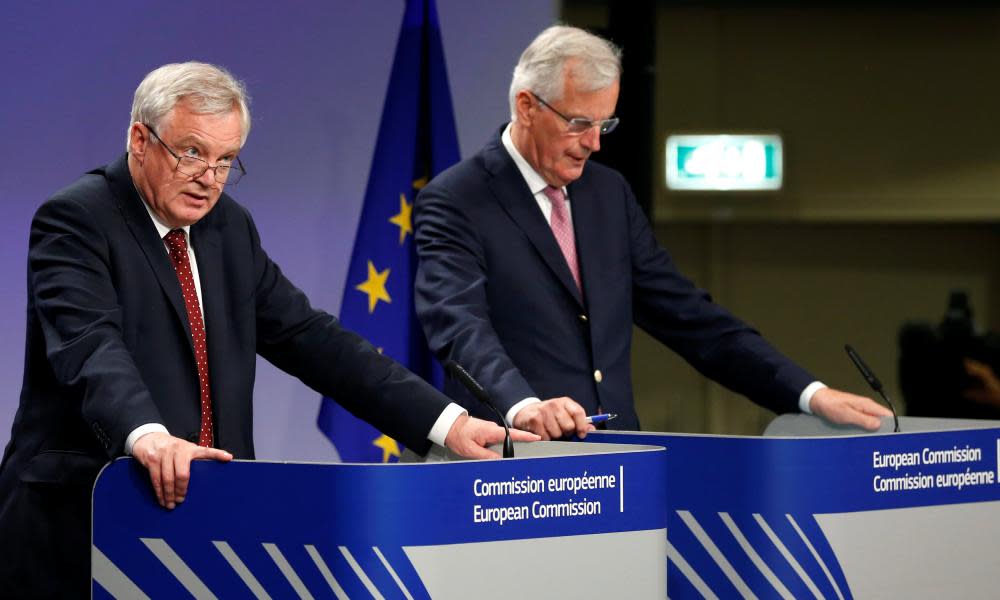EU demands right to child benefits even after Brexit

The right of EU citizens working in Britain to send child benefits to their children living abroad, even if they are born after Brexit, has become the latest flashpoint in the clashes between London and Brussels over the UK’s withdrawal from Europe.
Brussels believes European citizens living in the UK should be left unaffected by the referendum result, and the EU’s negotiating team, led by Michel Barnier, raised the issue midway through last week’s negotiations in Brussels.
While the British are offering to guarantee the continued payment of child benefits to families abroad, if the children are born before the UK leaves the EU, the government is unwilling to do the same for the children of European nationals born after 29 March 2019.
The UK provides around £30m a year in benefits to about 34,000 children living across the EU, mostly in Poland. There have long been calls for the payments to be stopped for parents whose children do not live in the UK.
It is understood British negotiators offered their EU counterparts little hope that they would rethink their position before the next scheduled talks at the end of August, although they promised to draw the attention of ministers to the issue. It is understood the wider issue of social security is likely to feature heavily when the two sides meet again.
The clash was one of a number on citizens’ rights, although the fundamental difference continues to lie in the EU’s insistence that the European court of justice should oversee any agreement. Theresa May has insisted that a test of leaving the EU is whether Britain is outside the jurisdiction of the court in Luxembourg.
Senior British government figures believe the EU is asking a lot, and in danger of “judicial imperialism”. Brussels insists that it is only through involvement of the ECJ that citizens can have the certainty they require. Sources within the EU negotiating team said they believed the prime minister has made a major mistake in insisting the lack of involvement of the court is a red line.
Despite the differences, sources close to the talks said they believed that an agreement on citizens’ rights will be carved out before October, when the European council, whose members comprise the leaders of the member states, meet to decide whether there has been sufficient progress on the key withdrawal issues of citizens, the UK’s divorce bill and the border in Ireland.
Hopes of moving negotiations on to a free trade deal this autumn have, however, been dealt a blow by a decision by the European parliament to offer its own analysis on whether sufficient progress has been made.
It has taken a tough line since the referendum, with MEPs including Manfred Weber, German leader of the European People’s party, the largest group in the chamber, appearing happy to play “bad cop” in the talks.
Guy Verhofstadt, the parliament’s Brexit coordinator, told a House of Lords committee taking evidence from the EU side that MEPs were keenly watching developments. “We have decided to make a resolution in October/November indicating whether sufficient progress has been made,” he told peers. Verhofstadt, a former Belgian prime minister, added: “The council will decide on this, but the parliament will give its assessment on it. I do not think it impossible that if we say there has been sufficient progress, the council will say no – or we say there is not sufficient progress but the council says there is.
“It will be very important when, at the end of October and the beginning of November, we assess whether we can go into phase two.”

 Yahoo News
Yahoo News 
